Sweden is known for many things: blond hair, blue eyes, high taxes, meatballs, Abba (now you’ll have “Dancing Queen” looping in your head all day), minimalist interior design, fine crystal, Ingrid Bergman, flat-pack furniture (Been to IKEA lately?), and Absolut Vodka.
But that’s not all.
These days, the Land of the Midnight Sun is quickly gaining a reputation as the Land of Not Burning the Midnight Oil.
A recent article in The New York Times — In Sweden, an Experiment Turns Shorter Workdays into Bigger Gains – tells of surprising results from a two-year test in Gothenburg, the country’s second-largest city. Businesses taking part in the experiment reduced employee workdays 25% to six hours with no reduction in pay. The goal was to see if a shorter workday would help mitigate burnout while boosting productivity.
Early results are encouraging. Productivity levels have risen, sick days have dropped dramatically, employee satisfaction scores are up, and workers report they feel more creative and inspired.
Two years ago, a publicly funded nursing home in Sweden experimented by letting 80 nurses work six-hour shifts at eight-hour salaries while a second nursing home kept 80 nurses at the standard, 40-hour work week. To date, the level of absenteeism driven by sick days has been cut in half for the six-hour crowd (vs. the second facility working normal hours) and nurses report their spirits are higher and they’re delivering higher quality care to patients.
Bengt Lorensson, lead consultant contracted by the City of Gothenburg to analyze the data, told Forbes magazine, “Right now, we’re only looking at early indications but we can see that the quality of work is higher” among those working shorter days. One caregiver at the facility summed it up thusly: “What’s good is, we’re happy. And a happy worker is a better worker.”
Interestingly, a Swedish internet start-up, independent of the Gothenburg study, had already adopted a six-hour workday in 2013 and results have been impressive. Revenue and profits have doubled! Says one worker, “We don’t send unnecessary emails or tie ourselves up in meetings. If you only have six hours to work, you don’t waste your time or other people’s time.”
Work Smarter, Not Harder … Duh!
I once worked with a young lady I’ll call Jane. Jane’s manager observed that she arrived at work at precisely 9 AM and dashed for the door each day at 5:30 PM while others worked until 7, 8, 9 o’clock or later (and often groused about it). But Jane always got her work done and was among the highest producers on the manager’s 11-person team. Curious, he asked her about this.
In words to this effect, Jane said: “I love my co-workers and I enjoy chatting with them and going to lunch together but I limit myself to 2-3 minutes of conversation, not 20, and I never go on an extended lunch when there’s work to do. I have a life outside of work so I don’t waste time at the office. I get my work done so I can enjoy my life.”
Will America ever adopt a shorter workday? Probably not. For better or worse, we’re wired for work, it seems.
Maybe it’s time for all of us to brainstorm new ways to accomplish old tasks more efficiently and with better results. In an increasingly distracting world (cell phones ringing, emails beeping, news alerts, weather warnings, internet browsing, Facebook, sitting elbow-to-elbow in co-working spaces, and traditional interruptions like chatty colleagues, illness, family emergencies, etc.), it can be very difficult.
But it can be done. Just ask the Swedes.
Or ask Dr. Edward M. Hallowell, a Harvard-trained psychiatrist and in-demand motivational speaker who specializes in juvenile and adult Attention Deficit Disorder (ADD) and Attention Deficit Hyperactive Disorder (ADHD). Dr. Hallowell has been featured on Oprah, Dr. Oz, Dr. Phil, 60 Minutes, CNN and the four major networks, and says even those not diagnosed with ADD or ADHD often exhibit the same symptoms of giving in to distractions, resulting in longer, less productive workdays, deteriorating morale, declining health, and increased absenteeism due to sickness. (And probably unemployment!)
In his 2014 book Driven to Distraction at Work – How to Focus and Be More Productive (2015, Harvard Business Review Press), Dr. Hallowell speaks of “screen-sucking” (internet/social media distractions), failed multi-tasking (not everyone can juggle even when you think you can), idea-hopping (touching many tasks but completing none), worrying excessively, and being a hero or martyr in the workplace (“Sure, I’ll do that!” … when you shouldn’t). All of these extend the workday unnecessarily.
I go back to the quote from the employee of the Swedish internet start-up that instituted a six-hour workday with impressive results: “We don’t send unnecessary emails or tie ourselves up in meetings. If you only have six hours to work, you don’t waste your time or other people’s time.”
Hmmm … maybe shorter is better after all. (The Swedes would probably bet their bottom krona on it!)
Starting today, I’m going to take a six-hour mindset to my normal work day to see just how much more efficient and productive I can be.
CONCLUSION
Take a six-hour mindset to your normal workday and see how much more efficient and productive you become. Who knows, we might start a revolution in the U.S. workplace!
What are your thoughts? I’d love to hear from you.
Cheers!





